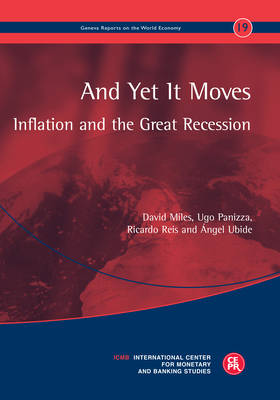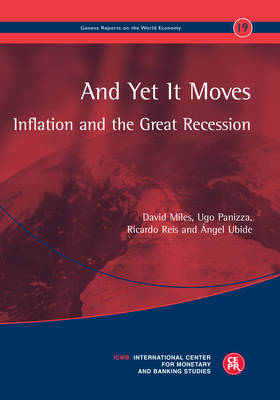
- Afhalen na 1 uur in een winkel met voorraad
- Gratis thuislevering in België vanaf € 30
- Ruim aanbod met 7 miljoen producten
- Afhalen na 1 uur in een winkel met voorraad
- Gratis thuislevering in België vanaf € 30
- Ruim aanbod met 7 miljoen producten
And Yet It Moves
Inflation and the Great Recession
David Miles, Ugo Panizza, Ricardo Reis, Ángel UbideOmschrijving
Over the last decade, the developed world has been hit by the deepest recession since the Great Depression and a rollercoaster in commodity prices. And yet, core inflation has been both low and fairly stable. A rule of thumb that inflation is always near 2%, though more often than not just a bit below, has been quite reliable. The young, or those with short memories, could be forgiven for looking condescendingly at their older friends who speak of inflation as a major economic problem. But, like Galileo Galilei told his contemporaries who thought the Earth was immovable, "Eppur si muove" ("and yet it moves"). Since most societies regard stable inflation as a goal, it is tempting to describe this solid anchoring of inflation as a great achievement of monetary policy. But what if it was just luck? Will the great anchoring soon lead a great bout of inflation, just as the Great Moderation was followed by the Great Recession? Do we need to change the way in which policy is set to better handle changed circumstances since the financial crash?
The 19th Geneva Report on the World Economy starts by analysing outcomes across countries for the last ten years. Inflation is compared with its behaviour in the period before the financial crash to assess the extent to which it really has been stable, what the proximate causes are, and whether it will stay low in future. The report then assesses theories of inflation in light of these facts, and tries to make sense of them. Next, the report turns to the question we posed at the start: was it good policy or good luck that prevented severe deflation and kept inflation relatively steady?
A description of what policies were adopted and how they interacted with economic shocks informs the conclusions on appropriate policies--both monetary and fiscal--for the future. The report pays particular attention to the role of central banks and the extent of their activities.
Specificaties
Betrokkenen
- Auteur(s):
- Uitgeverij:
Inhoud
- Aantal bladzijden:
- 128
- Taal:
- Engels
- Reeks:
- Reeksnummer:
- nr. 19
Eigenschappen
- Productcode (EAN):
- 9781912179053
- Verschijningsdatum:
- 30/10/2018
- Uitvoering:
- Paperback
- Formaat:
- Trade paperback (VS)
- Afmetingen:
- 171 mm x 248 mm
- Gewicht:
- 272 g

Alleen bij Standaard Boekhandel
Beoordelingen
We publiceren alleen reviews die voldoen aan de voorwaarden voor reviews. Bekijk onze voorwaarden voor reviews.











